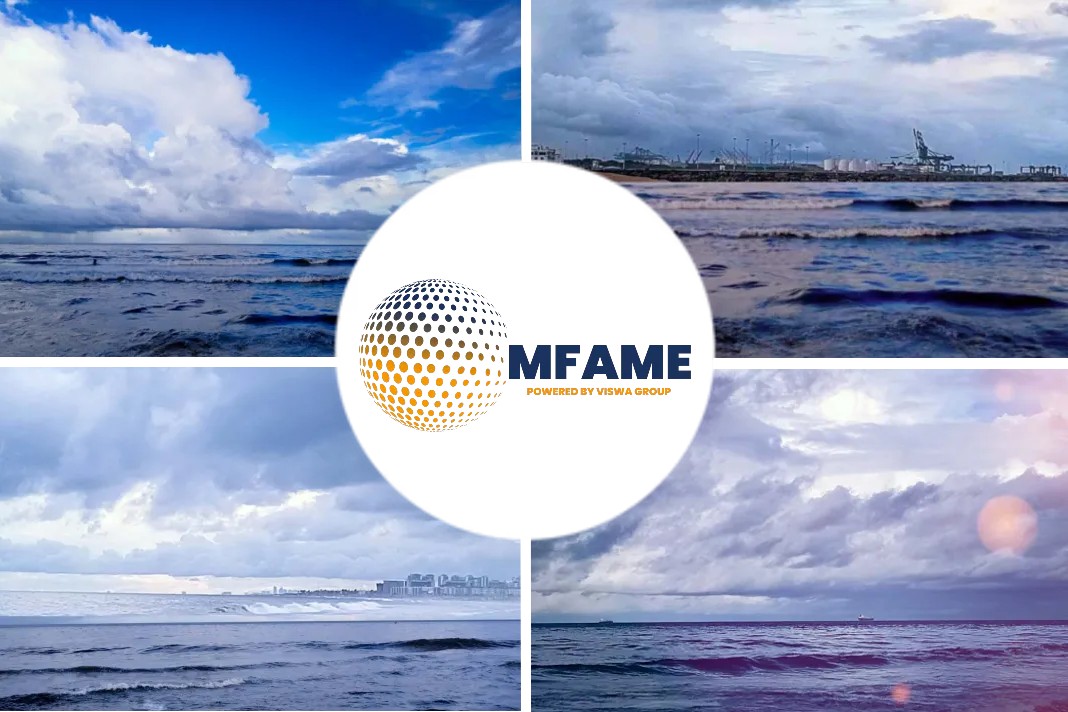
Van Oord christened two new dual fuel trailing suction hopper dredgers, which are built to run on the more sustainable LNG, says an article published on their website.
Investing in decarbonisation
Van Oord is committed to reducing carbon emissions and to becoming carbon-neutral by 2050, in line with the Paris Agreement.
Approximately 95% of Van Oord’s carbon footprint is linked to its fleet. Most progress can therefore be made by investing in decarbonisation of its vessels, as well as in green vessels and alternative fuels.
Future fuel
The Boreas is an example of the energy transition within Van Oord. The vessel is the first of its kind to run on the future fuel methanol. Running on methanol reduced the ship’s carbon footprint by more than 78%.
Pioneers
The delivery of the methanol engines is a major milestone for the three parties YCRO, Wärtsilä and Van Oord and a result of successful collaboration. It is the first order for newbuild methanol-fuelled engines for Wärtsilä.
Van Oord is pleased to be the pioneer of Wärtsilä’s latest methanol-fuelled engine technology. It demonstrates the companies’ shared commitment to supporting the maritime industry’s goals to reduce its environmental impact.
Lowering its impact
‘Van Oord is committed to lowering its impact on climate change by reducing our emissions and becoming net-zero. Our equipment roadmap focuses on low-carbon fuels and energy efficiency. We see methanol as one of the alternatives to meet the industry’s goals to reduce its environmental impact. The delivery of these methanol engines is a major achievement and a result of successful collaboration.’ Harold Linssen, Director Ship Management Department at Van Oord
Methanol
Methanol is a clear, colourless liquid that is soluble in water and is biodegradable. It comprises four parts hydrogen, one part oxygen, and one part carbon, and is the simplest member of a group of organic chemicals called alcohols. As a marine fuel, methanol has many advantages. Methanol is relatively inexpensive to produce, widely available and easy to store. Green methanol is an even better choice because of how it’s made.
The best option would be E-methanol: produced from hydrogen from renewable-sourced electricity and recaptured carbon, making it carbon neutral. Green methanol is among the potential and most promising future fuel candidates. It is expected that the global supply infrastructure of green methanol will develop substantially.
Investments in engine technologies
‘We congratulate Van Oord on their vision and commitment to a decarbonised future. At Wärtsilä we are actively supporting this commitment with heavy investments in engine technologies capable of operating with alternative clean-burning fuels. The Wärtsilä 32 engines for this vessel, fuelled with methanol, showcases that shipping is entering an era of greater sustainability.’ Lars Anderson, Director Product Management and Sales Support at Wärtsilä
Heavy-duty jack-up vessel Boreas
Offshore wind is a key contributor to achieving climate change targets around the world. The Boreas, being able to install the next generation of 20 MW offshore wind turbines, is preparing Van Oord for the increase in scale in the offshore wind industry.
The 175-metre long vessel is purpose-built for the transport and installation of foundations and turbines at offshore wind farms. With a top-class crane it can lift more than 3,000 tonnes.
Cutting-edge active emissions
The Boreas has an advanced jacking system, allowing the vessel to work in waters up to 70 metres deep. The vessel will be equipped with a cutting-edge active emissions control technology (Selective Catalytic Reduction) to reduce the NOx emission to an absolute minimum.
A 5,000 kWh battery pack can take peak loads and regenerate energy to reduce the fuel consumption (and corresponding emissions) even further.
Did you subscribe to our daily Newsletter?
It’s Free! Click here to Subscribe!
Source: vanoord






















